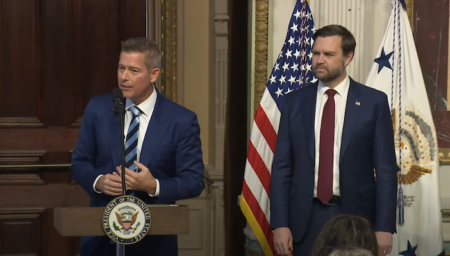The USDOT’s FHWA has announced Emergency Relief funds for states badly affected by Hurricane Helene. North Carolina has received $100 million, while Tennessee has been allocated $32 million, and South Carolina $2 million, to address damage to roads and bridges.
Hurricane Helene, which impacted the region from September 26-28, 2024, caused significant infrastructure damage through heavy rainfall, flooding, winds, and tornados.
In North Carolina, the storm led to flash flooding, landslides, road washouts, and bridge collapses, including damage to I-40 at several locations. Tennessee experienced similar issues, with substantial damage reported in eight counties, resulting in the closure of I-40 and I-26 near the Tennessee/North Carolina state line.

“Working in close coordination with affected states, we are providing this initial round of funding so there’s no delay getting roads repaired and reopened, and re-establishing critical routes,” said US Transportation Secretary Pete Buttigieg stated. He emphasized the Biden-Harris administration’s commitment to supporting the recovery efforts.
“It has been devastating to witness scenes of communities destroyed by Helene,” said Acting Federal Highway Administrator Kristin White. “I am proud to say that the FHWA has been working tirelessly to restore community connections and support emergency response disaster recovery efforts.”

The Emergency Relief funds, provided through the FHWA’s “quick release” process, are an initial instalment to help restore essential transportation links. Additional funds for repairing damage in both states will be supported by the Emergency Relief program through nationwide funding allocations.
These funds are part of a larger response to Hurricane Helene by the Biden-Harris Administration. Secretary Buttigieg has been receiving regular briefings and has communicated with the governors of the affected states. He also visited FEMA Headquarters for a briefing on the hurricane’s impacts and joined Cabinet colleagues to brief President Joe Biden at the White House.
The FHWA’s Emergency Relief program complements Bipartisan Infrastructure Law initiatives by encouraging measures to incorporate resilience in the design, restoration, and repair of damaged infrastructure to better withstand future climate change and weather events.





